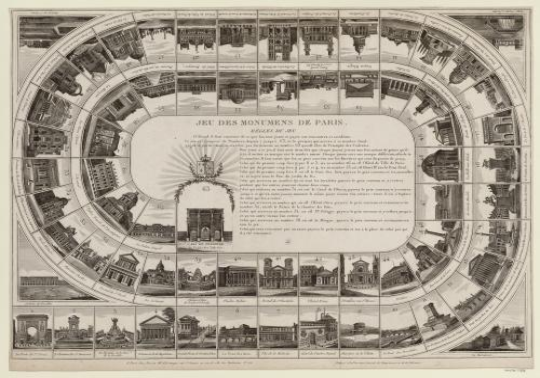
01/02/23
NEW ENTRY TO "SABERES EN ACCIÓN" (KNOWLEDGE IN ACTION): "Ciudad" (City) by Josep Simon (IILP-UV)
Second part of "saberes en acción" (knowledge in action): https://sabersenaccio.iec.cat/.
Category "Geographies".
Between utopia and non-place, the city plays various roles as a driving force in the history of science, technology and medicine and as a crossroads of geo-historical scales.
[...] with the expression "city" or "urban" we are alluding to several different dimensions. Already the Romans clearly distinguished [...] - between the built space, the urbs, and the citizens, the civitas. To which we could add yet another feature, the political and administrative, which is well formulated by the Greek expression of the polis. This simply means that the "urban" is a form of classification: of space and of society.
Horacio Capel, Bitter cries about the city (2001)
In Barranquilla 2132, writer Juan Antonio Osorio Lizarazo (1900-1964) imagined in 1932 the future of the then most cosmopolitan of Colombian cities: a world without nation-states, structured by independent cities, marvels of progress translated into air transports powered by atomic decomposition, incessant editions of the periodical press by magnetic waves, solitary and utilitarian feeding practices, aseptic and asexual codes of conduct, tall buildings of steel and glass, floating clinics on the sea surrounded by gardens, eugenic control of the population -all governed by municipal boards harmoniously interpenetrated with universal assemblies-. A new world born from the ashes of civilization after the great crisis of the year 2000, marked by overpopulation, famine, epidemics, the self-destructive race of machinism and the practical debacle of capitalism, communism and republican democracy. Like other dystopian accounts of the contemporary city, Barranquilla 2132 fused Catholic Athens with metropolitan liberal utopia through a mixture of positivism and morality. After the dazzle of his visit to the future, the protagonist of this novel abhors the inflexible supremacy of technology, the hysterical rationalization of everyday life, the emptiness of the over-information society and the new urbanity devoid of emotions and aesthetics, all of which lead to dehumanize such a brilliant and postmodern civilization. Only the river and the sea remain unperturbed by these changes. From the port, disappointed, he plunges into the sea - origin of human life - to reconnect with nature or his now longed-for past.
To continue reading:

12/01/23
NEW ENTRY IN "SABERES EN ACCIÓN" (KNOWLEDGE IN ACTION): "La experimentación animal: un debate de larga duración" (Animal experimentation: a long-running debate) by José Ramón Bertomeu Sánchez (IILP-UV)
Second part of "saberes en acción" (knowledge in action): https://sabersenaccio.iec.cat/.
Category "Controversies".
Debates about animal experiments show the changing mix of issues from different fields in long-running controversies.
Animal experimentation has given rise to debates on different issues, with various participants and since ancient times. The use of animals as an object of research appears sporadically in the earliest texts related to medicine. Although there are hardly any references in the early Hippocratic texts, Aristotle (384-322 BC) already carried out a large number of dissections in order to observe internal structures and thus intuit the function of organs. The Alexandrian school of physicians, most notably Herophilus (ca. 330-260 BC) and Erasistratus (ca. 304-245 BC), regularly practised vivisection of animals and experiments on humans. Egyptian rulers apparently provided physicians with prisoners condemned to death for research.
To continue reading:
https://sabersenaccio.iec.cat/lexperimentacio-animal-un-debat-de-llarga-duracio/

19/12/22
Christmas timetable 2022
On the occasion of the Christmas and New Year holidays, the Biblioteca Historicomèdica will have the following opening hours:
• Researchers' room and staff-assisted services (lending, room consultation, etc.): Closed from 24 December to 8 January, both included, except on 27, 28, 29 and 30 December, which will be open from 8:15 am to 2:30 pm.
• Study room: Closed from 24 December to 8 January inclusive, with the exception of 27, 28, 29 and 30 December, which will be open from 8:00 to 20:00.On the 9th of January it will reopen with the usual opening hours. You can also see the Chirstmas timetable in the rest of libraries.
Merry Christmas!!





























